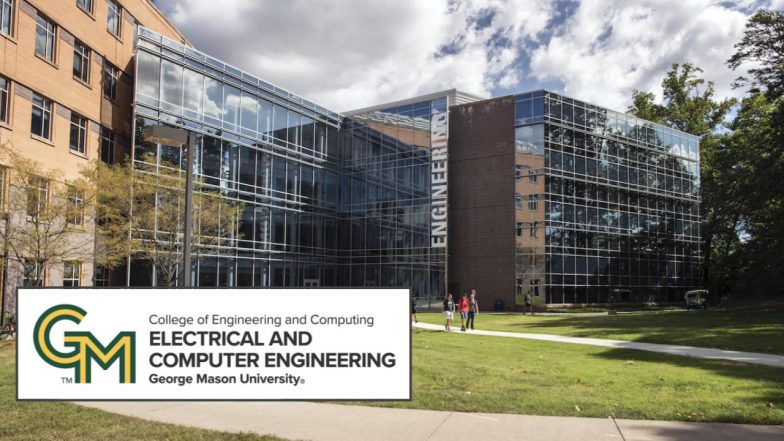Summary
Welcome to the Department of Electrical and Computer Engineering, one of the oldest and largest departments in the College of Engineering and Computing.
The department was established more than 40 years ago, initially offering a degree in electronics engineering.
Through the years, we’ve added more programs and now have more than 800 students across our seven undergraduate and graduate programs combined.
Some students choose to pursue dual degrees or minors to complement their degrees. Thousands of students have graduated from our accredited programs and gone on to prosperous careers in engineering and related fields.
Over thirty full-time faculty and many adjunct faculty support the educational and research aspirations of our students.
Our industry advisory board provides valuable direction and insight to our department and its initiatives.
We also support other George Mason Engineering programs through our interest in interdisciplinary collaboration in both education and research.
Source: Website
OnAir Post: ECE – Electrical and Computer Engineering
About
Web Links
Cybersecurity Research
Source: Other
Cybersecurity cuts across disciplines to protect digital data and systems for computers, smart phones, wearables, IoT devices, autonomous vehicles, and industrial control systems.
Protecting these systems and the data they process involves work at the lowest physical and hardware layers up through the highest software layers; securing a system starts at the design phase and continues through implementation, operation, and investigation.
Areas of Expertise
Hardware Security
This group examines the design, operation, and protection of processors and associated digital hardware at the physical and lowest software layers. For example, researchers use machine learning at both the hardware and software levels to provide protection against malicious insertions on integrated circuits and to prevent the cloning of chips through reverse engineering.
Principal Investigator: Sai Manoj Pudukotai Dinakarrao, Khaled Khasawneh
Wireless Communication Security
The Wireless Innovation and Cybersecurity Lab (WICL) focuses on secure wireless communications to include attack, defense, and detection. Current research addresses attacks in cognitive radio networks and security for different aspects of 5G communications. Other work examines the security of UAV (drone) communication and control, identifies drone platforms from encrypted wireless activity, and analyzes automobile network signals for indications of intrusions.
Principal Investigator: Kai Zeng
Digital Forensics
The Digital Forensics and Data Analytics Research Group (DFDARG) focuses on the extraction, analysis, and manipulation of residual digital artifact fragments. Researchers extract raw digital data from a range of systems and media, to include IoT devices, point-of-sale systems, PLCs, UAVs, other embedded systems, smart phones, computers, and portable storage media. Extracted data is analyzed to infer past activity, to include system compromise, malfunctions, and misuse. The group also develops methods for manipulating transient and persistent data as well as methods for detecting such manipulation.
Principal Investigator: Jim Jones, Robert Osgood


